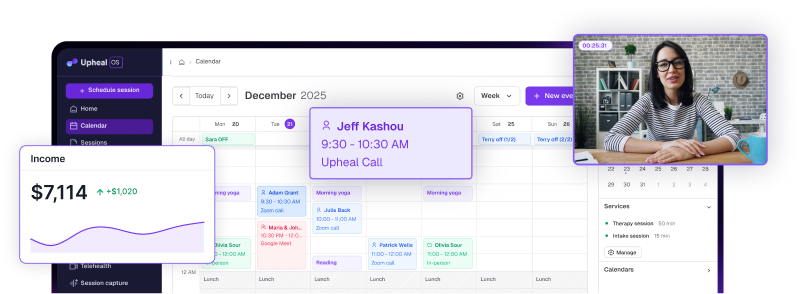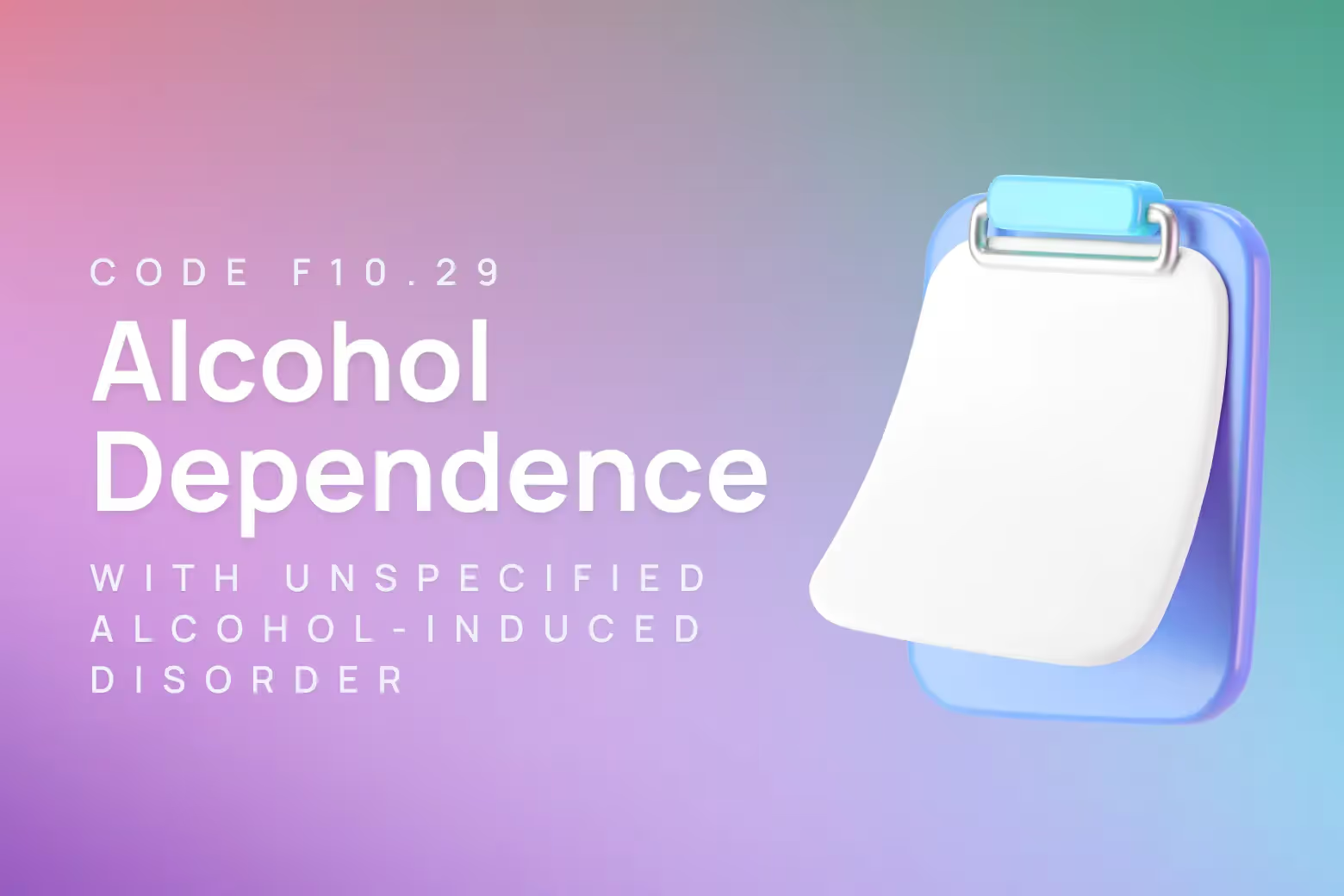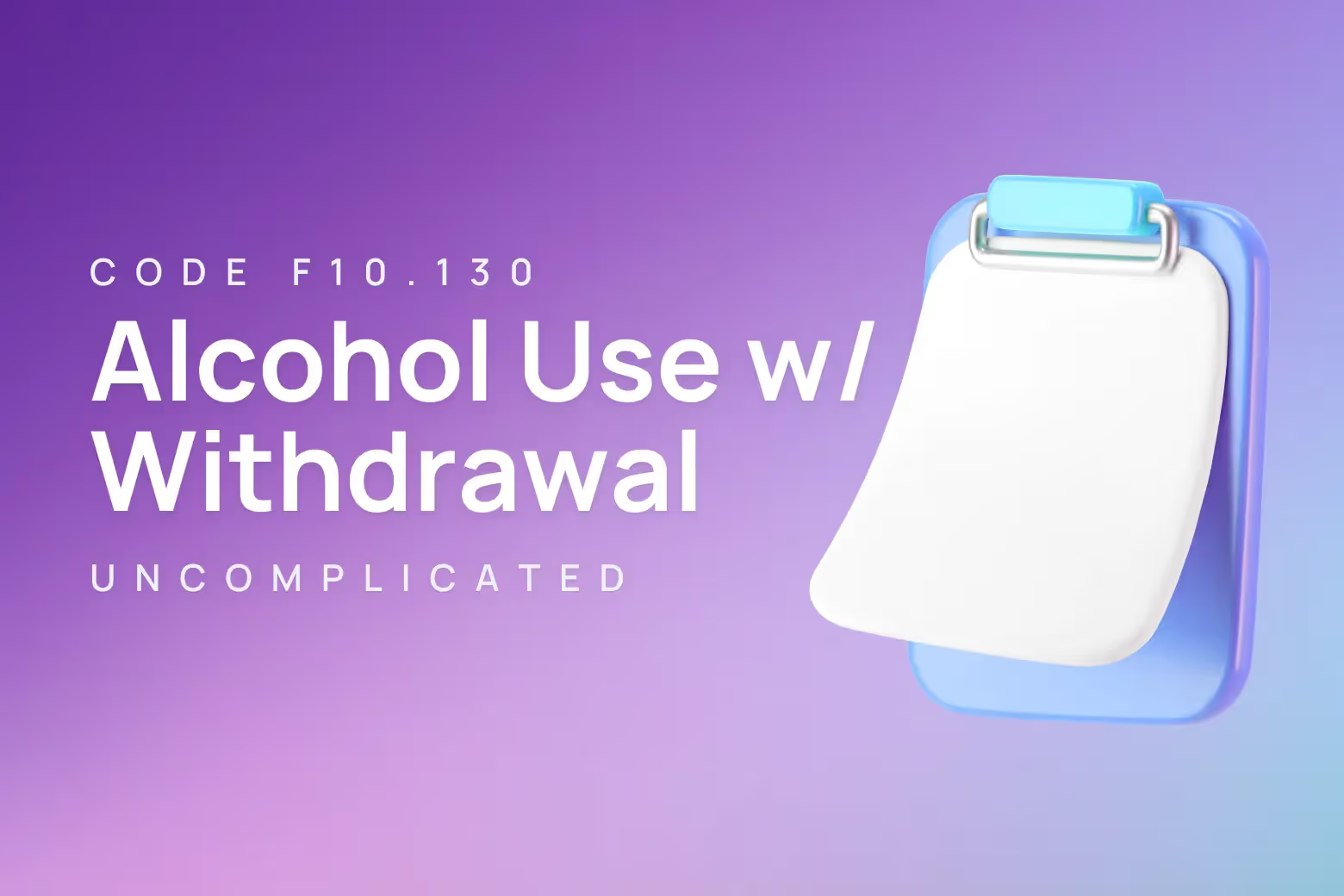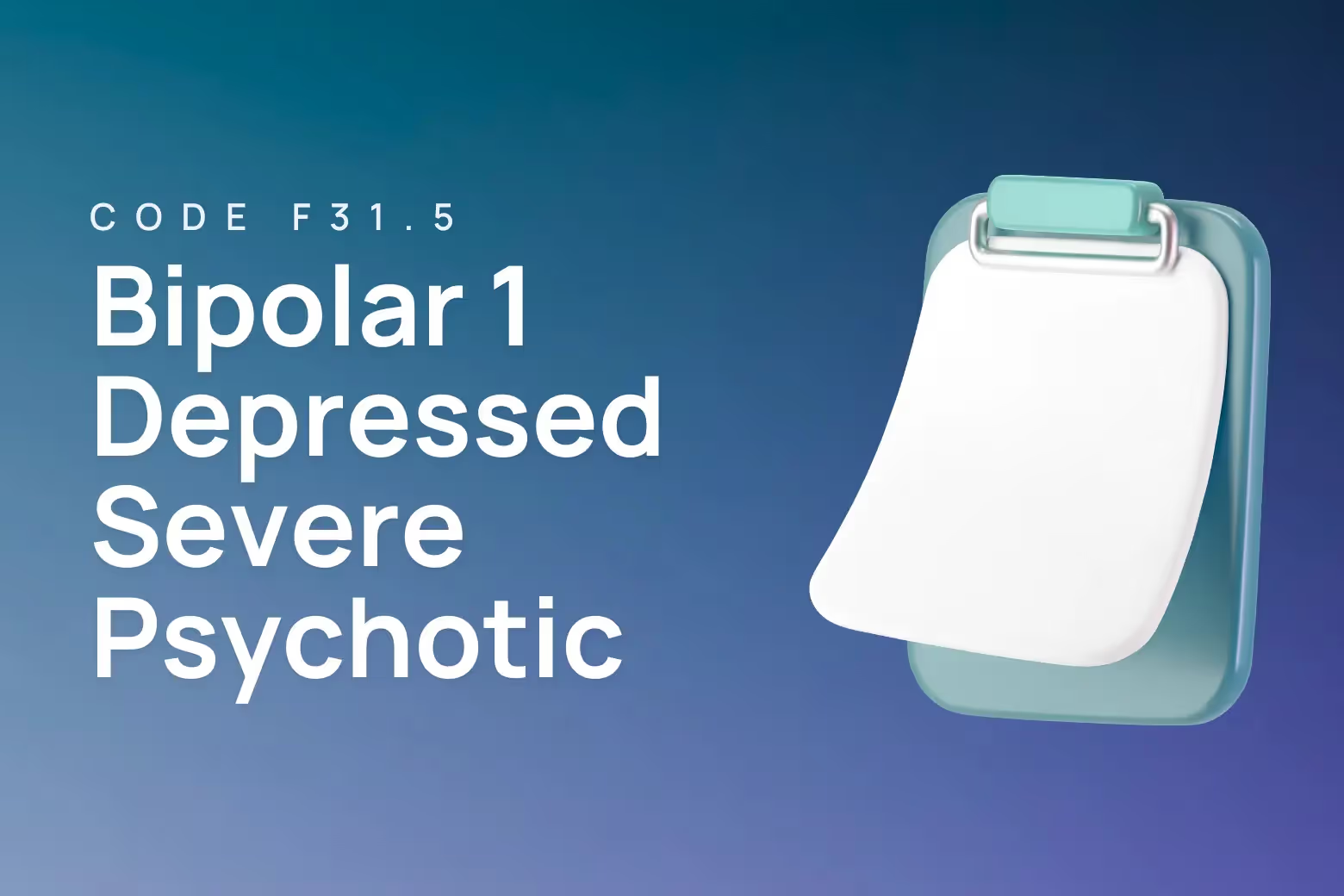ICD-10 code for bipolar disorder, current episode depressed, moderate

F31.32 is the ICD-10 code for bipolar disorder, current episode depressed, moderate. This diagnosis applies when someone with established bipolar disorder is currently experiencing a major depressive episode of moderate intensity, falling between mild and severe presentations.
Accurate diagnosis and documentation for F31.32 ensures clients receive appropriate care while meeting insurance requirements and compliance standards that support continued treatment authorization.
Key features:
- F31.32 requires both an established bipolar disorder diagnosis and current moderate depressive episode criteria
- Moderate severity indicates symptom count, intensity, and functional impairment between mild and severe specifiers
- Evidence-based treatments include mood stabilizers, psychotherapy, and psychoeducation approaches

Diagnostic criteria for bipolar disorder, current episode depressed, moderate (F31.32)
To assign F31.32, clinicians must first establish a bipolar I disorder diagnosis, which requires at least one lifetime manic episode. The current major depressive episode must meet criteria for five or more symptoms present nearly daily for at least two weeks, including depressed mood or anhedonia.
Additional symptoms include significant weight changes, sleep disturbances, psychomotor changes, fatigue, feelings of worthlessness, concentration difficulties, or recurrent thoughts of death. The moderate specifier indicates that "the number of symptoms, intensity of symptoms, and/or functional impairment are between those specified for mild and severe.”
- Five or more depressive symptoms present nearly daily for at least two weeks
- At least one symptom must be depressed mood or anhedonia
- Symptoms cause significant distress or impairment in functioning
- Episode occurs in context of established bipolar disorder with prior manic episode
- Moderate intensity with functional impairment between mild and severe levels
When to use F31.32 diagnosis code
F31.32 should be used when the current episode meets criteria for moderate major depression in someone with established bipolar disorder. However, clinicians must carefully distinguish this from related diagnoses to ensure proper coding compliance.
F31.32 vs F31.31 (Mild depressed episode)
F31.31 applies when "few, if any, symptoms in excess of those required to meet the diagnostic criteria are present, the intensity of the symptoms is distressing but manageable, and the symptoms result in minor impairment in social or occupational functioning.” In contrast, F31.32 represents greater symptom burden and functional impact.
Clients with mild episodes typically maintain most daily activities with some effort, while moderate episodes show more noticeable disruption to work performance, relationships, and self-care. The distinction requires careful assessment of both symptom count and functional capacity.
F31.32 vs F31.4 (Severe non-psychotic depressed episode)
F31.4 indicates that "the number of symptoms is substantially in excess of those required to make the diagnosis, the intensity of the symptoms is seriously distressing and unmanageable, and the symptoms markedly interfere with social and occupational functioning.” This severity level often requires intensive interventions and close monitoring.
F31.32 represents a middle ground where symptoms create noticeable impairment but remain more manageable than severe presentations. Clients can often continue working or attending school with some accommodation, whereas severe episodes may require time away from major responsibilities.
Related ICD-10 codes
Related codes within the bipolar disorder diagnostic group include:
- F31.3 - Bipolar disorder, current episode depressed, mild or moderate severity, unspecified
- F31.31 - Bipolar disorder, current episode depressed, mild
- F31.4 - Bipolar disorder, current episode depressed, severe, without psychotic features
- F31.5 - Bipolar disorder, current episode depressed, severe, with psychotic features
Interventions and CPT codes for moderate depressed episodes of bipolar disorder
Mood stabilization and medication management
First-line pharmacological treatments for moderate bipolar depression include mood stabilizers such as lithium or quetiapine monotherapy. Combination treatments may include lithium plus lamotrigine or mood stabilizers with atypical antipsychotics like lurasidone.
Medication management sessions use CPT code 99213 (office visit, 20-29 minutes) or 99214 (office visit, 30-39 minutes) depending on complexity and time spent.
Cognitive Behavioral Therapy (CBT)
CBT provides essential tools for understanding mood patterns, identifying triggers, and developing coping strategies for depressive episodes. Clients learn to recognize early warning signs and implement mood regulation techniques.
CBT sessions are billed using individual psychotherapy codes:
- 90832 - 30-minute session
- 90834 - 45-minute session
- 90837 - 60-minute session
Psychoeducation and family therapy
Psychoeducation helps clients and families understand bipolar disorder, medication adherence, and lifestyle factors that support mood stability. Family involvement addresses accommodation behaviors and builds supportive home environments.
Family therapy uses these CPT codes:
- 90846 - Family therapy without patient present
- 90847 - Family therapy with patient present
How Upheal improves F31.32 ICD-10 documentation
Suggesting appropriate ICD-10 codes based on session content
Upheal's clinical documentation platform analyzes session content to identify key symptoms and severity indicators that support F31.32 diagnosis.
Rather than manually sorting through diagnostic criteria, clinicians can focus on therapeutic work while Upheal tracks symptom patterns and functional impairment levels that differentiate moderate from mild or severe presentations.
Maintaining HIPAA-compliant records with proper diagnostic coding
Upheal maintains secure, encrypted records that include proper severity specifiers and episode context needed for insurance authorization.
Automated documentation reduces coding errors that could delay treatment approval or create compliance issues.
Reducing administrative burden so you can focus on client care
By handling the technical aspects of diagnostic coding, Upheal allows clinicians to dedicate more time to therapeutic interventions for clients experiencing moderate bipolar depression.
This efficiency proves especially valuable when treating bipolar disorder, where accurate documentation supports treatment continuity and helps prevent future mood episodes through consistent monitoring and intervention.
Supporting clients with bipolar disorder, current episode depressed, moderate
Managing moderate depression in bipolar disorder requires a balanced approach that addresses current symptoms while preventing future mood episodes. Clinicians serve as steady guides during these challenging periods, providing both immediate support and long-term stability planning.
Effective treatment combines medication management with psychotherapy and psychoeducation, creating a comprehensive safety net for clients navigating mood fluctuations. The therapeutic relationship becomes especially important during depressive episodes, when hope may feel distant.
Upheal is a clinical documentation platform that generates accurate notes while preserving the therapeutic focus that drives meaningful change. Clinicians can concentrate on delivering evidence-based interventions while ensuring all documentation requirements support continued care authorization.
Ready to focus more on your clients and less on paperwork? Try Upheal free and discover how proper documentation supports better outcomes for individuals with bipolar disorder.












